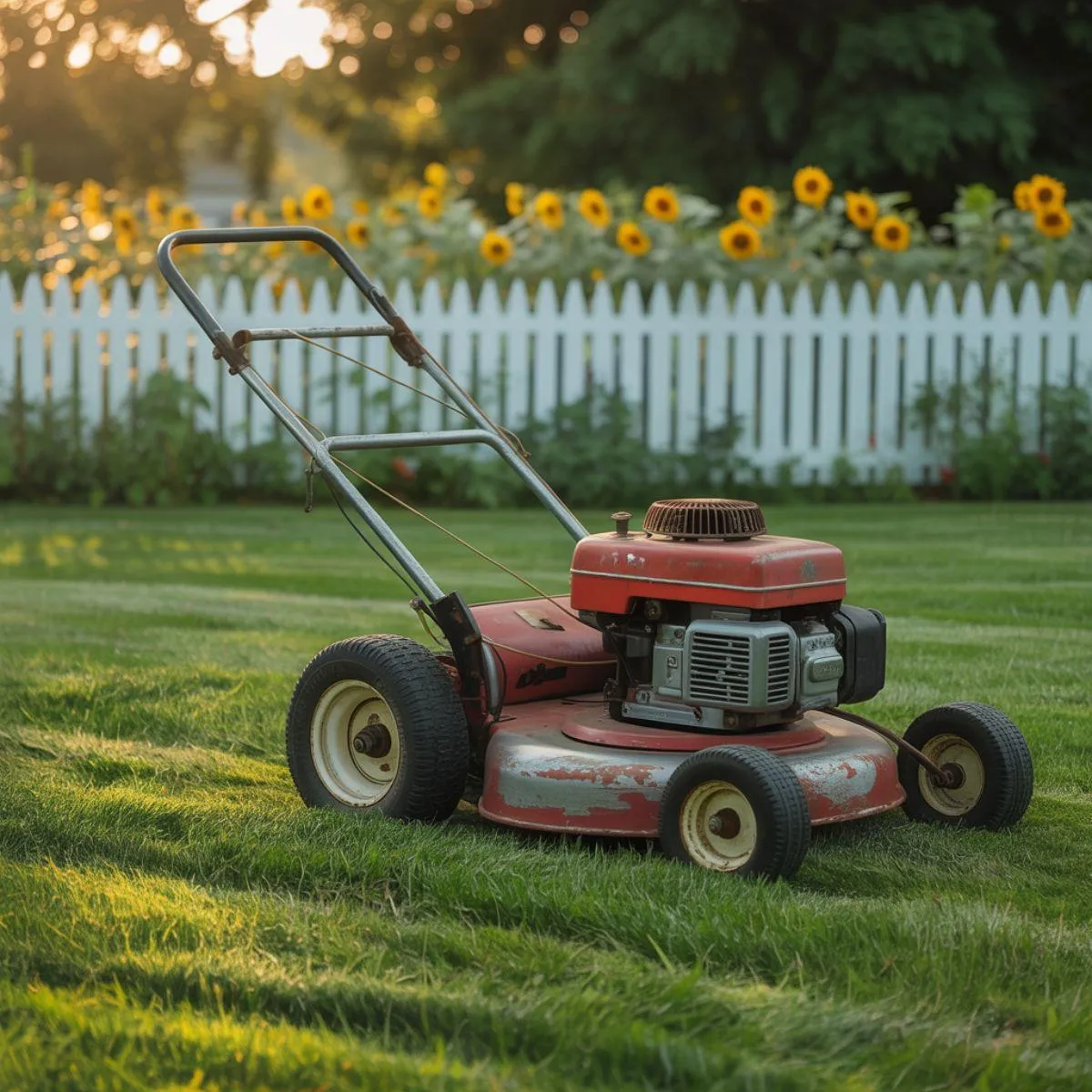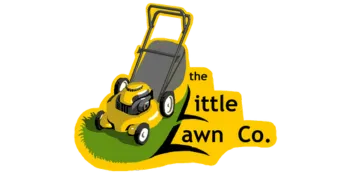Our Blog

Ultimate Summer Lawn Mowing Guide

Did you know that 87% of Altoona homeowners are accidentally killing their lawns every summer? If you're mowing when temperatures are consistently above 80°F and cutting your grass shorter than 3 inches, you're putting your lawn under severe stress that could take months to recover from—if it recovers at all.
As Blair County swelters through another scorching July, with temperatures regularly hitting the 90s, most well-meaning homeowners are making critical mowing mistakes that turn their once-lush lawns into brown, patchy disasters. But here's the good news: with the right knowledge (and maybe a little professional help), your lawn can thrive even in the worst summer heat.
The Science Behind Summer Lawn Stress in Central Pennsylvania
Central Pennsylvania's unique climate creates a perfect storm for lawn stress. Our region sits in what lawn care professionals call the "transition zone," where both cool-season and warm-season grasses struggle with extreme temperature swings. Most Blair County lawns feature cool-season grasses like Kentucky Bluegrass and Perennial Ryegrass, which are unlikely to be growing in the heat of summer and shouldn't need much mowing when temperatures consistently exceed 80°F.
What Happens When You Mow Too Short in Summer?
Mowing too short or scalping results in stress to the grass plant, and weak grass plants will take longer to recover. When you cut your grass below 3 inches during peak summer heat:
1. Root Damage: Shorter grass means shorter roots, reducing your lawn's ability to access deep soil moisture
2. Increased Evaporation: Without tall grass blades to shade the soil, moisture evaporates rapidly
3. Weed Invasion: Mowing too short can allow weed seeds to get more sun and increase the chance of germination
4. Heat Stress: Exposed soil temperatures can exceed 140°F, literally cooking grass roots
The Golden Rule: The 3.5-4 Inch Summer Height
Professional lawn care experts agree: In summer, raise your mowing height by half an inch to an inch. Taller grass shades the soil, conserves moisture, and protects roots from heat stress. For Altoona lawns, this means maintaining a height of 3.5 to 4 inches throughout July and August.
Why This Height Works:
Natural Cooling: Taller grass creates its own microclimate, keeping soil temperatures up to 20°F cooler
Deeper Roots: Taller grass means longer roots and greater ability to withstand drought and reach nutrients
Moisture Retention: The shade provided by taller grass can reduce water evaporation by up to 50%
The Critical 1/3 Rule Most Homeowners Break

Here's a shocking statistic: To maintain a 3-inch lawn, you must mow before the grass reaches 4.5 inches tall. This follows the sacred "1/3 rule" of lawn care—never remove more than one-third of the grass blade in a single mowing.
The Problem: In peak summer, Blair County lawns can grow 2-3 inches per week. Miss one weekend of mowing, and you're forced to break the 1/3 rule, causing severe stress to your lawn.
When Is It Actually Too Hot to Mow in Altoona?
Temperature guidelines for safe mowing:
Below 80°F: Ideal mowing conditions
80-85°F: Mow only in early morning or evening
85-90°F: Avoid mowing unless absolutely necessary
Above 90°F: 90 degrees is definitely too hot to mow. If your lawn desperately needs cutting, wait until evening or until weather has cooled down
Health Risks of Hot Weather Mowing
Symptoms of heat exhaustion can include fatigue, nausea, light-headedness, dizziness, and heavy sweating. Every summer, Blair Regional Medical Center treats dozens of heat-related illnesses from DIY lawn care attempts.
The Hidden Costs of DIY Summer Lawn Care
Let's talk real numbers for Altoona homeowners:
Time Investment (July-August):
8 weeks of peak growing season
5 hours per week (mowing, trimming, cleanup)
Total: 40 hours of your summer
Equipment Stress:
Increased fuel consumption (30% more in heat)
Faster blade dulling requiring more frequent sharpening
Engine strain from thick summer growth
Average repair costs: $200-400 per summer
Lawn Damage Costs:
Overseeding damaged areas: $150-300
Additional watering: $50-100/month increase
Potential full lawn renovation: $1,500-3,000
Professional Secrets for Summer Lawn Success

The Little Lawn Co. has maintained award-winning lawns through six years of Central Pennsylvania summers. Here's what sets professional care apart:
1. Early Morning Service
Our crews start at 7 AM, completing most properties before the day's heat peaks. This eliminates the physical labor from the task and makes mowing easier in hot weather.
2. Sharp Blades Changed Weekly
Sharp mower blades create a clean cut which allows the plant to heal faster, unlike dull blades that tear the plant's tissue. Most homeowners sharpen blades twice per season—we change them weekly.
3. Height Adjustments Based on Conditions
We monitor weather patterns and adjust cutting height daily. During heat waves, we may raise decks an additional half-inch for extra protection.
4. Professional Equipment Advantages
Our commercial mowers feature:
Floating decks that follow terrain contours
Mulching systems that return nutrients to soil
Zero-turn capability for less time on each lawn
The Dormancy Dilemma: When Your Lawn "Gives Up"
Cool-season grasses will likely go dormant in summer, allowing leaves to go yellow to survive. If grass is dormant, you shouldn't mow it. Many Altoona homeowners panic when they see brown grass, but dormancy is actually your lawn's survival mechanism.
Signs Your Lawn Has Gone Dormant:
Grass turns brown or tan
Blades don't spring back when walked on
Growth completely stops
Soil feels dry even after watering
Professional Tip: The Little Lawn Co. monitors each property for dormancy signs and adjusts service accordingly—something DIY homeowners often miss.
Your Action Plan for a Healthy Summer Lawn
For DIY Diehards:
Raise Your Mower NOW: Set deck height to 3.5-4 inches
Sharpen Blades: Dull blades cause 40% more stress
Follow the 1/3 Rule: Even if it means mowing twice per week
Mow Early or Late: Never between 10 AM and 6 PM
Skip Dormant Grass: Wait for green-up before resuming
The Smarter Alternative:
Join 140+ Blair County families who've discovered that professional lawn care actually costs LESS than DIY when you factor in:
Equipment costs and maintenance
Your time (40+ hours per summer)
Potential lawn damage
Health risks in extreme heat
The Little Lawn Co. Difference:
6-time "Best Lawn Care" award winner
Starting at just $36.05/week
Professional equipment and expertise
Early morning service (you sleep in!)
Weather-adjusted scheduling
100% satisfaction guarantee
The Bottom Line: Your Lawn's Summer Survival
This summer, you have two choices:
Continue the exhausting cycle of weekend mowing, risk heat exhaustion, and potentially damage your lawn with improper techniques
Trust the professionals who understand Central Pennsylvania's unique challenges and have the equipment, expertise, and awards to prove it
A higher lawn shades the soil, minimizing evaporation and protecting roots from harsh heat. Whether you achieve that height yourself or let professionals handle it, your lawn's health depends on making the right choice—before the next heat wave hits.
Ready to save your lawn (and your weekends)? Call The Little Lawn Co. at 814-422-LAWN or visit thelittlelawnco.com for your free quote. Because life's too short to spend it behind a mower in 90-degree heat.
Get Your Weekends Back!
Professional weekly service starting at $36 | Award-winning quality | Serving Altoona and surrounding areas

Follow Us!
©The Little Lawn Co 2025 All Rights Reserved.
